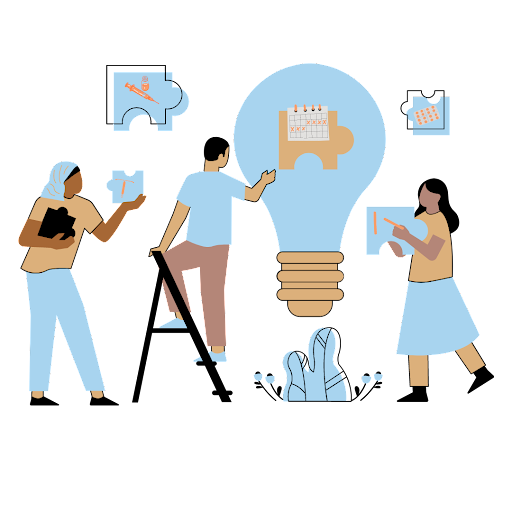The Democratic Republic of the Congo (DRC) has the most complex and long-standing humanitarian crisis in Africa and the fourth internally displaced people (IDP) crisis in the world. The persistent and severe humanitarian crisis in the DRC is the result of a long history of conflict and violence characterized by forced displacement. According to the most recent figures from March 2022, there are 5.97 million IDPs in the country, of which conflict or attacks by armed groups have displaced close to 96% (OCHA). Past fighting between government forces and the rebels resulted in widespread abuses against the civilian population and prolonged humanitarian crises.
Throughout the past few decades, the complexity of the (civil rights and gender-based) complexities in the DRC has only increased, compounded by a multitude of factors. Gender inequality and gender-based violence (GBV) are serious concerns for refugees from the DRC. In the spring of 2022, the conflict in Eastern DRC escalated when the Mouvement du 23 Mars (M23) rebel military group engaged in fighting with the government in the North-Kivu province. This sparked violence and displacement across the province. As of November 2022, some 5.5 million people were displaced within the country.
The government officials work together with different partners to support the DRC in providing security for the displaced people. Different humanitarian partners are intervening to provide essential health care during the crisis, like UNFPA supporting access to a holistic range of services, where services and information on reproductive health, gender-based violence (GBV), and sexual exploitation and abuse (SEA) were offered free of charge to women and girls. Ipas DRC provides sexual and reproductive health care to displaced women and girls through mobile clinics in the camps. Internally, displaced settlements and camps have reached or exceeded capacity, and the available basic services are either stretched to their limits or too costly, affecting IDPs and members of local communities.
Cases of GBV among the population are widespread and displaced populations are recognized as being at a heightened risk of sexual violence. Youth and Adolescent IDPs lack access to ongoing contraceptive methods and often experience changes in pregnancy intentions, both dynamics that increase the risk of unintended pregnancy among young people below 24 years of age. There is a dire need for improving community engagement. IDPs sexual and reproductive health in the camps and the implication of community health care workers and peer educators will contribute in reducing the number of unwanted pregnancies and sexual transmissible infections in this settings, while also improving referral network for the specific needs of IDPs.
Teenage pregnancies have major health and social consequences, which often worsen in humanitarian complexities. Complications related to pregnancy and childbirth are the leading cause of death among girls ages 15-19 worldwide. Access to and provision of high-quality services are limited to IDPs who do not receive the required special attention. Adolescents who make up the IDPs, face obstacles in accessing and using quality healthcare before, during, and after pregnancy. Certain groups of adolescents, for example, very young adolescents, unmarried adolescents, and those displaced by war, civil unrest, or other emergencies, do face particular barriers to access the necessary health care services.
Given the nature of the ongoing humanitarian emergencies in the North-Kivu, the need for contraceptive services has increased. Adolescents who wish to avoid or delay pregnancy may have little access to family planning contraceptive services, and women who experience an unwanted pregnancy are unlikely to have access to support services. In the humanest context, the lack of reproductive health information and services, including modern contraception, further undermines the health of women and girls. Internally displaced women in the North-Kivu are exposed to particularly high levels of sexual violence and may also have to engage in transactional sex to survive, all while experiencing reduced access to contraceptive methods. As various community partners are now intervening in sexual and reproductive health and promotion of women reproductive health, there is a hope for this to reverse or course correct insufficient practices.
Change needs to be done to recognize and address the gender and power dynamics in healthcare facilities. Ensuring people do not experience coercion, discrimination, that there is effective and meaningful participation of concerned persons and person-centered care for women and girls who are using sex for survival that are always at risk of contracting STIs due to reproductive health coercion and lack of contraceptive services. There is much that needs to be done by not overlooking how supporting their social-economic status can offset some of these challenges.
“…My mother got sick when we moved [into the]in the refugee camp. I then started the sex work to get medication and to survive. When I went to the mobile clinic they refused to give me contraceptive methods because I was 17 years old….I don’t use condoms because most men [refuse]d…I am now two or three months pregnant and I don’t even know who is responsible because all my partners refuse to acknowledge it” – Sifa in Bulengo Camp.
Disruption in family planning services can be minimized through:
a) preparedness actions,
b) crisis response, and
c) coordinated transition back to routine services.
Among displaced youth access to family planning is vital and the most cost-effective way of reducing maternal and neonatal mortality in humanitarian settings. Access to family planning for IDPs must be an essential part of the humanitarian response and can be advanced forward as we leaders and practitioners:
- Advise adolescents and girls on contraceptive methods and provide them with contraceptives if they so wish;
- Raise awareness among health workers about the damaging consequences of teenage pregnancy, which often affects girls from refugee families;
- Protect girls from the risks of sexual exploitation;
- Listen more carefully to young people about their goals and aspirations; and
- Discuss with them on how good health, including the voluntary use of family planning, can help them reach their full potential.







